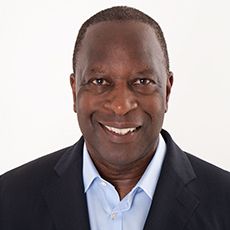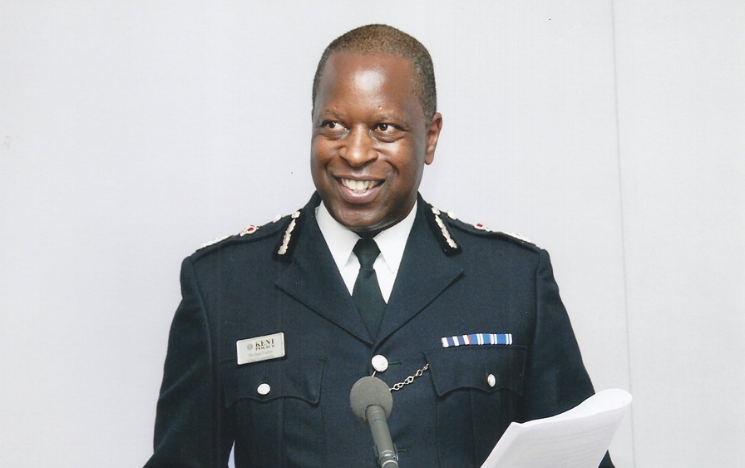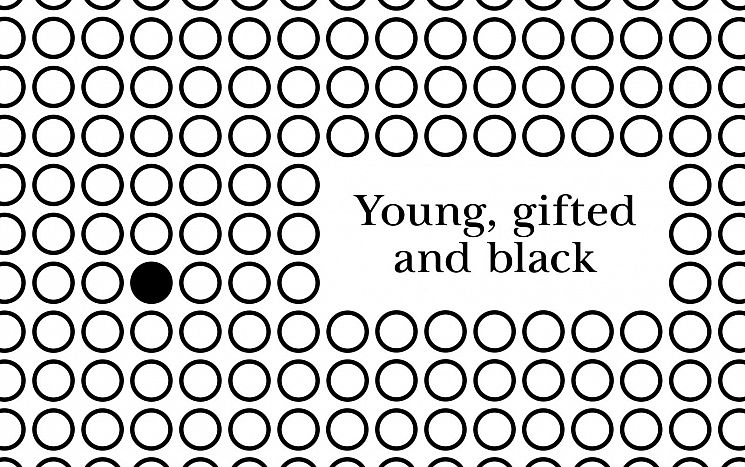Young, gifted and black
Michael Fuller (AFRAS 1978) joined Kent Police as the UK’s first black Chief Constable in 2005 after nearly 30 years tackling violent crime and racism in London. Now a criminal justice consultant advising the Home Office on race issues, he reflects on growing up in care, the education Sussex gave him and the racism he experienced throughout his 34-year police career.

AFRAS 1978
I called my memoir Kill The Black One First because it was once said to me. I was the only black police officer on the frontline of the Brixton riots in 1981 and it was shouted at me by a black rioter. The title, though shocking, symbolises my feelings of being targeted, combined with the sense of isolation and marginalisation I often felt in my career.
Despite my experience, I want my story to give hope and inspiration to others. I wrote it after talking to a group of West London College students. They thought I’d come from a privileged background, but when they heard I’d been brought up in care, that grabbed their attention and several of them said they thought I should write a book.
I’d always wanted to be a police officer. I used to watch all the 1960s TV police dramas in my childhood with ‘Auntie Margaret’, a remarkable woman who was the carer at our children’s home in Surrey. I suppose they were quite moralistic – the cops were always the good guys – and Auntie Margaret was always keen to talk about knowing the difference between right and wrong, and then doing the right thing.
Auntie Margaret was the only one who encouraged me to join the police. When I visited my dad and his Caribbean friends in London and told them about my ambition, they said, didn’t I understand that the police were our enemy? They hated the police because of the hostility they experienced. But my experience had mostly been with the local beat officers, who were nice to me. I’d also helped to solve a crime after our children’s home was burgled. I found the burglar asleep on a bench – and everybody got their property back. That gave me immense satisfaction. I’ve always felt that justice for the victims of crime is important.
I thought people would see me as a police officer and my colour would be irrelevant. I was totally wrong. On the beat in uniform, I was called a traitor. And my fellow officers would often start with “No offence Michael, but...” and then tell a racist joke. Auntie Margaret taught me to recognise when something was offensive without being hurt by it. She would say: “Stop. Think. Decide how you want to react.” Using logic in the way I respond has served me well and it’s something I wanted my own children to know and understand.
I received a police scholarship to study Social Psychology at Sussex, and it opened my eyes to politics, social issues, economic issues and global issues – especially because of the number of international students I met. Reading African and Asian literature also educated me to the fact that colonisation wasn’t a good thing in the way I had been taught at school. I felt I’d been cheated in not being given a broader perspective in my history lessons of the negative impact that colonisation can have on a country. A lot of the students were from former colonialised countries, so I was able to hear first-hand their perspective on imperialism.
Being a student at Sussex taught me how to learn. I’d always had an appetite for learning, but once I’d acquired the skills in terms of notetaking and essays there was no stopping me. Having come from care there was no expectation that I would go to university. But every opportunity I had to study I grabbed with both hands. Even though I wasn’t active in student politics, I wanted to have a good understanding of the beliefs and underlying philosophies of the various parties and did an evening class in political philosophy when I was a cop – although I don’t know how I found the time.
A lot of the people who were unashamedly racist assumed that everybody they worked with was like-minded..”
I wasn’t shy about tackling and confronting racism. I was the founding Chair of the Black Police Association at a time when more black and Asian officers were leaving the Metropolitan Police (Met) than joining it. I thought I would be thrown out for setting that up. Some senior officers misconstrued it as a black power organisation, which it wasn’t, it was a support organisation, but the police commissioner at the time supported me. After 25 years it’s still going.

A lot of the people who were unashamedly racist assumed that everybody they worked with was like-minded. I saw a gradual change in attitudes and views, but a lot of the wrongdoing is because people won't call others out. Having studied social psychology, I think it’s about protecting your own. It’s a misplaced loyalty to the immediate group rather than the organisation. You see it in policing but also in other organisations too.
I set up the Racial and Violent Crime Task Force after being involved with the Macpherson Report, which looked at the failings of the Met following the unsolved murder of Stephen Lawrence in 1993. This involved developing a family liaison system, with officers trained to work with families who were victims of crime.
There are still racial biases within the criminal justice system, which need to be tackled. The Lammy Review [2017] showed that if you're black you're more likely to be stopped, searched, arrested, charged and be convicted. And if you’re convicted you're more likely to receive a heavier sentence of imprisonment.
I feel I’ve achieved what I could and I’m proud I stayed the course. I was never going to resolve those issues by myself, so I’m now encouraging other decision-makers to correct those biases. There are more statutory regulations than in the 1970s and there is redress in a way that I felt there wasn’t when I was a child. But the existing systems don’t work efficiently and that’s why regulators are necessary.

